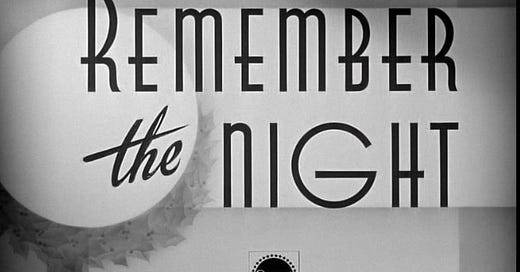Barbara Stanwyck is one of our favorite actresses at our house, and Fred MacMurray one of our favorite actors, so to get them together in one movie is a knockout. Sure, we know about Double Indemnity, where they both play villains and end up dead — the essential American film noir. And it wasn’t the only time when usual good-guy and sometimes goofball …
Keep reading with a 7-day free trial
Subscribe to Word & Song by Anthony Esolen to keep reading this post and get 7 days of free access to the full post archives.



